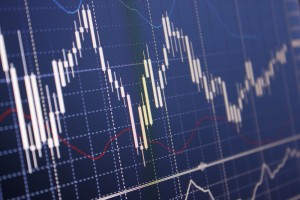 The investment fraud attorneys at Gana Weinstein LLP are currently investigating Stoever, Glass & Company Inc. (Stoever, Glass & Company) broker Adam Goodman (Goodman). According to BrokerCheck Records held by the Financial Industry Regulatory Authority (FINRA), Goodman has been subject to three customer disputes, one of which is still pending. The majority of these disputes concern the misrepresentation of investments and unauthorized trading of customer accounts.
The investment fraud attorneys at Gana Weinstein LLP are currently investigating Stoever, Glass & Company Inc. (Stoever, Glass & Company) broker Adam Goodman (Goodman). According to BrokerCheck Records held by the Financial Industry Regulatory Authority (FINRA), Goodman has been subject to three customer disputes, one of which is still pending. The majority of these disputes concern the misrepresentation of investments and unauthorized trading of customer accounts.
Most recently, in April 2018, a customer alleged that Goodman engaged in numerous fraudulent practices, not limited to high pressure sales practices, unsuitable investment recommendations, and negligence with customer accounts. The customer has requested $25,000 in damages. This dispute is currently still pending.
In August 2017, a customer alleged that from 2013 to 2017, Goodman executed unauthorized trades in the customer account and over-concentrated investments. The case was settled at $21,000 in damages.
In December 2016, a customer alleged that Goodman falsely represented the nature of investments to the customer and executed trades in the account without the customer’s prior authorization. The case settled at $50,000 in damages.
Unauthorized trading occurs when a broker sells securities without the prior consent from the investor. All brokers, who do not have discretionary authority to trade an account, are under an obligation to first discuss trades with the investor before executing them under NYSE Rule 408(a) and FINRA Rules 2510(b). Under the NASD Conduct Rule 2510(b), a broker is prohibited from trading in a non-discretionary customer account without prior written authorization from the customer. Unauthorized trading is a type of investment fraud because the Securities Exchange Commission (SEC) has found that disclosures of trades being made are essential and material to an investor. Unauthorized trading is often a gateway violation to other securities violations including churning, unsuitable investments, and excessive use of margin.
The number of complaints and regulatory actions on Goodman’s record are unusual compared to his peers. According to newsources, only about 7.3% of financial advisors have any type of disclosure event on their records among brokers employed from 2005 to 2015. However, studies have found that in certain parts of California, New York or Florida, the rates of disclosure go up to as high as 18%. Brokers must publicly disclose reportable events on their CRD customer complaints, IRS tax liens, judgments, investigations, and even criminal matters.
Goodman entered the securities industry in 1992 and has been registered with Stoever, Glass & Company since January 2018. From August 2010 to January 2018, Goodman was registered with Herbert J. Sims & Co. Inc. From September 1997 to November 1997, Goodman was registered with Wien Securities Corp. From June 1996 to January 1997, Goodman was registered with the G.M.S Group, Inc.
Investors who have suffered losses may be able recover their losses through securities arbitration. The attorneys at Gana Weinstein LLP are experienced in representing investors in cases of security fraud and unauthorized trades. Our consultations are free of charge and the firm is only compensated if you recover
 Securities Lawyers Blog
Securities Lawyers Blog

